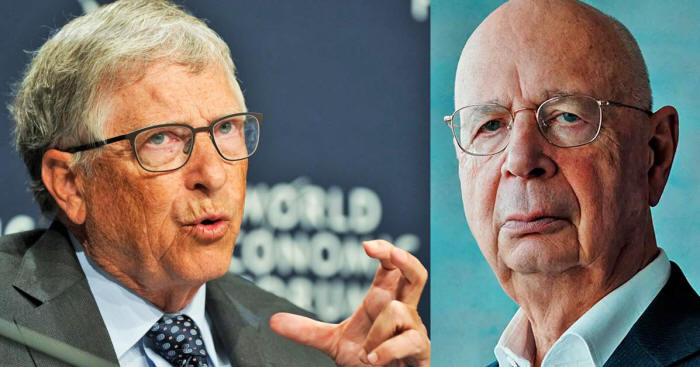|

by Frank Bergman
October 17, 2024
from
SlayNews Website

The
thoroughly Technocratic "Digital Public Infrastructure"
(DPI) originally slid in on the back of the
'global
warming' hoax.
Unaccountable and unelected Bill Gates is rebranding the
effort with his Modular Open-Source Identity Platform (MOSIP).
On 1-3 October, the Global DPI Summit 2024 was held in
Cairo, Egypt.
The
principal sponsor was a NGO called
Co-Develop Fund, who
promised to, bring together key stakeholders from the
public, private, and civil society sectors, including:
-
Countries: Countries that are seeking best-in-class
approaches to digitization.
-
Bilateral and multilateral institutions:
Institutions that support country governments in
their digitization efforts.
-
Open-source digital public good providers: Providers
of scalable digital solutions that can be used by
countries to implement DPI.
-
Private sector companies: Companies with the
expertise and capacity to help governments implement
digital solutions at a population scale.
-
Civil society actors: Actors who are working to
ensure that DPI is implemented in a way that is
inclusive and protects the rights of all citizens.
-
Global DPI thought leaders: Experts on DPI who can
provide valuable insights and guidance to countries
on their DPI implementation journeys.
-
Domain-focused actors: Actors who are working to
implement DPI solutions in specific sectors, such as
education, healthcare, and agriculture.
Source
Microsoft co-founder
Bill Gates is pushing
governments to adopt the new global system for digital cash and ID
that is backed by the
World Economic Forum.
Gates and his foundation are doubling down on
support for a digital public infrastructure (DPI).
DPI supports both digital IDs and payments and is backed by,
Gates is now pressuring governments around the
world to begin incorporating DPI as the globalist groups push for
payments and IDs to switch to a fully digital system on a global
level.
The billionaire laid out his vision for
global DPI in a new blog post.
The Silicon Valley oligarch is once again attempting to
establish his reputation as a "visionary" on these matters.
Gates praised several third-world "developing countries" for
allowing DPI to be tested on their citizens.
He revealed that the system has already been
"trialed for the rest of the world" in,
One of the major criticisms leveled at
digital IDs and payments is that
they will lead to "enhanced," digital government surveillance, and
subsequent disenfranchisement of people.
Many have also raised concerns about the rush to usher in the
technology.
Globalists have been pushing for DPI to be
rolled out globally for large-scale adoption
by 2030, ostensibly to fight
"climate change."
However, Gates does not share these concerns about the
technology and is heavily pushing for DPI to be rolled out for
the general public.
According to Gates, citizens should not be
concerned about government surveillance because "a properly
designed" DPI will in fact "enhance" privacy.
He claims DPI includes "safeguards" which he didn't elaborate on.
Gates also touches on what he says are the benefits of using
Modular Open-Source Identity Platform (MOSIP).
MOSIP is a global digital ID tool backed by
the Gates Foundation.
However, MOSIP is yet another point of contention from the
privacy standpoint.
But MOSIP featured as a key participant during the recent Global
DPI Summit 2024 held in Egypt.
At the event, those behind MOSIP, as well as the World Bank, the
UN's development agency UNDP, and the globalist
Tony Blair Institute all
took part.
The event provided another opportunity for these
organizations to push for global adoption of DPI by 2030.
In addition, the organizations pledged to work on accelerating this
process.
MOSIP demonstrated its identity platform at
the summit.
At the same time, it stressed that the goal of
digital ID and payments is to improve accessibility of
identification,
"particularly for developing nations."
The platform is already in use in,
-
Ethiopia
-
Morocco
-
Sri Lanka
Meanwhile,
the World Bank announced that it is
about to launch its own global Digital Public
Infrastructure (DPI) program.
|


